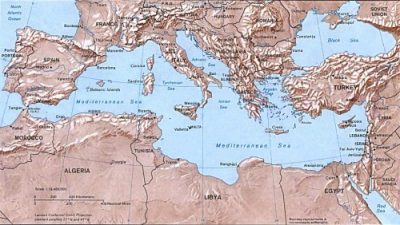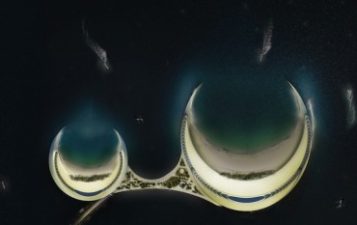 The Icelandic volcano has both environmental and economic effects. Some Middle East passengers are stranded in Europe and wonder if it’s time to think about less polluting modes of travel. By ship?
The Icelandic volcano has both environmental and economic effects. Some Middle East passengers are stranded in Europe and wonder if it’s time to think about less polluting modes of travel. By ship?
As a massive volcanic ash cloud hovers over most of Europe, Gulf-based airlines are increasingly concerned over the potential effects the Icelandic volcano may have on their business.
“It’s effecting all European operations,” Abu Dhabi-based aviation expert Oussama Salah told the Media Line. “The industry is losing some $200 million every day and they only expected a profit of $2-3 billion this year.”
But while the ash cloud continues to spread, aviation analysts are predicting that in the short run, it is unlikely to have a dramatic effect on carries carriers such as Etihad Airways (working to cut greenhouse gases), Emirates Airlines and Qatar Airways (see Green Prophet’s past story on Qatar Airway’s biofuel project), all of which are fully or partially government owned and thereby able to absorb some degree of economic damage.
“Gulf-based airlines will be able to sustain the economic damage because of operations to Australia, Asia and Africa,” Salah said. “But it all depends on how fast we might actually return.”
“The cloud has now reached Turkey and Greece, so will have to wait and see what will happen,” he said. “We are all guessing. If it’s just a few days, it’s not going to present a problem for the local carriers, but European [airlines] will be decimated.”
Most of the airspace across Northern Europe has been closed to air traffic since the eruption of the Eyjafjallajokull volcano in Iceland, as fine particles in the ash cloud can cause airplane engines to completely shut down.
The European Organization for the Safety of Air Navigation said in a statement that approximately 5,000 airplanes flew in European airspace on Saturday, compared to an average of 22,000.
Etihad and Qatar Airways have temporarily cancelled all flights to Europe while Emirates is only operating flights to Moscow, Athens, Larnaca, Malta and Istanbul. Emirates said in a statement that all its other routes are operating normally.
On Sunday Emirates, whose European routes account for approximately one third of the airline’s operations, had some 40,000 passengers stranded in Dubai unable to fly to Europe. Etihad, from neighboring Abu Dhabi, had 11,000 passengers stuck and Qatar Airways reported 500 passengers stranded in Qatar.
Menachem Luria, a professor at the Institute of Earth Sciences at the Hebrew University in Jerusalem, said there were a number of factors affecting how long the ash cloud may remain. ”We cannot predict how long, sometimes for weeks, sometimes for days, it depends on the intensity,” he told The Media Line. “If the intensely is high it will be shorter and if the intensity is lower it will be longer.”
“So far it’s not approaching the region [Middle East],” he said. “So I don’t think this will last more than for a couple of days.”
Image via flashy dubai, of Dubai International Airport. This story is reprinted courtesy of The Media Line.
Read more on alternative travel in the Middle East:
A Quick Guide to Biking Around the Middle East
Leave No Trace: Ecologically Responsible Hiking
Eco Tourism in Lebanon
Eco Tourism in Jordan
Eco Tourism in Syria
Eco Tourism in Iran
Eco Tourism in Yemen
Eco Tourism in Egypt




The comments in this New Scientist article are worth reading: http://www.newscientist.com/blog/environment/20…The general notion is that people who piggyback rides on freightliners save emissions because they are cutting down on air travel, and are hitching a ride on ship bound to a port near them. The passenger weight on freight ships is negligible.
It's not at all clear that traveling by ship pollutes less than planes.